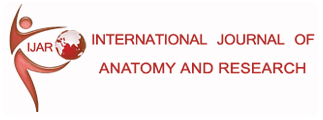IJAR.2017.357
Type of Article: Original Research
Volume 5; Issue 3.3 (September 2017)
Page No.: 4419-4423
DOI: https://dx.doi.org/10.16965/ijar.2017.357
A STUDY ON SUFFICIENCY AND RELEVANCY OF KNOWLEDGE OF GENETICS: A GENERAL PRACTITIONERS PERSPECTIVE
Saurabh P Kulkarni 1, Archana G Kalyankar *2.
1 Assistant Professor of Anatomy, Govt Medical College, Aurangabad, Maharashtra, India.
*2 Associate Professor of Anatomy, Govt Medical College, Aurangabad, Maharashtra, India.
Address for Correspondence: Dr Archana G Kalyankar, Associate Professor Of Anatomy, Govt Medical College, Aurangabad, Maharashtra, India. Mobile No. – 9702169287 E-Mail: spk2184@gmail.com
ABSTRACT
Background: Modern diagnostic policies recommend evaluation of genetic susceptibility of common diseases. With the advances in genetic research many genetic tests are available for prevention and early diagnosis of such diseases. General practitioners perform key role in primary screening and directing patients for diagnosis. Awareness amongst them about application of fundamental principles of hereditary and appropriate referral system can help society in decreasing burden of such diseases. But lack of this orientation in GPs as noted by many authors demands educational intervention at training level as well as for improving competency of practitioners.
Aim: To evaluate genetic knowledge of GPs on behaviour and attitude scale.
Methods: Prevalidated questionnaire was used to obtain perceptions of GPs for their knowledge, attitude and behaviour through true/false questions and Lickerts scale.
Results: GPs are deficient in evaluating risk factors and prompt referral for diagnostic techniques. They lack required knowledge for associating fundamental principles of genetic with clinical conditions. Their behaviour toward record keeping and sensitizing patients was inappropriate. Their attitude needs to be changed so that they can understand gravity of genetic disorder and use of advanced genetic techniques.
Conclusion: Educational interventions for case-based and competency based medical education modules at training level and continuous medical education programme on genetic issue are indicated for improving GPs knowledge ,behaviour and attitude regarding application of genetic principles in management of patients.
Key words: General Practitioners, Genetic, Knowledge, Educational Interventions.
REFERENCES
- Emery J, Watson E, Rose P, Andermann A. A systematic review of the literature exploring the role of primary care in genetic services. Fam Pract.1999;16(4):426–445.
- Royal College of General Practitioners. Genetics in primary care: A report from the faculty genetics group.London: RCGP; 1998.
- Carroll J, Rideout A. Genetic education for primary care providers: improving attitudes, knowledge, and confidence. Can Fam Phys.2009;55(12)
- Flouris A, Hawthorne G, Aitken M . Development of a questionnaire for evaluating genetics education in general practice . J Community Genet. 2010 Dec; 1(4): 175–183
- Burke W, Acheson L . Genetics in primary care: a USA faculty development initiative .Community Genet;2002;5(2):138–146.
- Baars M, Henneman L, Kate L. Deficiency of knowledge of genetics and genetic tests among general practitioners, gynecologists, and pediatricians: a global problem.Genet Med; 2005;7(9):605–610,
- Burke W, Emery J. Genetics education for primary-care providers.Nat Rev Genet.2002;3(7):561–566.
- Clyman JC, Nazir F; The impact of a genetics education program on physicians’ knowledge and genetic counselling referral patterns.Med Teach.2007;29(6):e143–e150.
- Boynton PM, Greenhalgh T; Selecting, designing, and developing your questionnaire;2004;328(7451):1312–1315.
- Briggs SR, Cheek JM; The role of factor analysis in the development and evaluation of personality scales;J Personality. 1986;54:106–148.
- Kumar S, Gantley M . Tensions between policy makers and general practitioners in implementing new genetics: grounded theory interview study. BMJ,1999;319(7222):1410–1413.
- Hutchinson L. Evaluating and researching the effectiveness of educational interventions.1999;318(7193):1267–1269.
- Greendale K, Pyeritz R. Empowering primary care health professionals in medical genetics: how soon? How fast? How far?. American Journal of Medical Genetic; 2001;106(3):223–232.
- Kolb S, Aguilar M. Genetics education for primary care providers in community health settings. J Community Health.1999;24(1):45–59.
- Metcalfe S, Hurworth R . Needs assessment study of genetics education for general practitioners in Australia. Genet Med.2002;4(2):71–77.
- Metcalfe S, Aitken M. The importance of program evaluation: how can it be applied to diverse genetics educational settings. J Genet Couns.2008;17(2):170–179.








